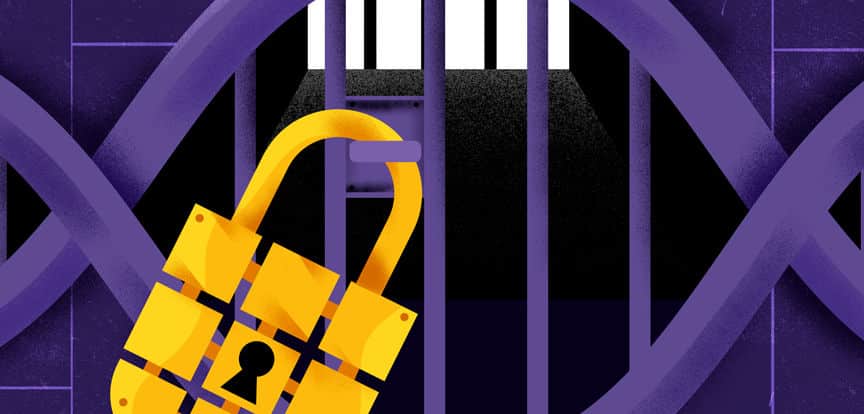Built on the emerging ecosystems of Web3 and blockchain, decentralized autonomous organizations (DAOs) allow communities to collectively fund and advance biotech research.
The majority of biotech companies are highly centralized with much of the data siloed away in their proprietary databases. Companies have no incentives to openly share this data, which slows down progress in the field. Also, this limits which kinds of problems the industry tackles.
Decentralized biotechs are different from traditional biotechs because they are less reliant on a single, central lab facility and supply chain. Decentralized biotech firms are challenging the old model by enabling end-users to participate more actively in where the funds are spent. This change is mirroring what has been underway in finance and social media for a few years.
Companies like Facebook (now Meta) and YouTube (now part of Google) enabled the transition from the old internet of static pages (Web1) to a dynamic, platform economy (Web2). While the users generate the data, these companies own it. Now, Web3 alternatives like decentralized social media websites seek to give control back to the users while also allowing them to own and potentially monetize their data.
Similarly, cryptocurrencies offer a decentralized alternative to fiat currencies. In the same spirit, an advantage of decentralized biotechs is they can allow end-users to participate in where the funds are spent.
Collective ownership of intellectual property
In biotech, as in other deep tech areas, breakthroughs often happen in academia first and are then commercialized by industry. However, while academic research is largely funded by the taxpayers, the resulting technological know-how and patents often end up with private companies. When published as scientific articles, much of the research can be inaccessible to anyone without journal subscriptions.
Decentralized autonomous organizations (DAOs), which include decentralized biotechs, present an alternative to how traditional companies are structured and where their incentives lie. Built on Web3 and the digital ledger system blockchain, these are decentralized communities of individuals with a common goal and a shared bank balance. DAOs are flat, unlike the top-down hierarchy of a standard company, in that the governance is spread across all members using rules governed by smart contracts.
Anyone who owns a part of the DAO, usually in the form of a digital token, is eligible to vote in deciding where the funds are spent. In this way, these organizations democratize the field. However, not everyone is specialized in making decisions such as evaluating the technical feasibility of a project. For this, biotech DAOs have regulations in place as to who is involved in such decisions (which some argue make DAOs not really flat).
Molecule is a DAO that is building a decentralized biotech protocol to support biopharma research and development. This serves as a marketplace that brings together researchers engaged in early-stage drug development and potential licensing opportunities.
Heinrich Tessendorf, Marketing Manager at Molecule, told me that “traditionally, academics go for public grants in a very rigid, time-consuming process. We come to this early-stage research point. We allow them to raise funds from the community.” Last year, Molecule helped launch VitaDAO, a DAO focused on democratizing research into longevity drugs.
This frees intellectual property (IP) from the limits of traditional pharma companies or research institutions by including some of the IP with the share of the company people are buying.
“It takes a long time and paperwork to sell your house, but stocks can be traded on the stock exchange with millions of interested buyers. And it can be the same as stocks with IP if there’s a marketplace. We turn the IP into non-fungible tokens (NFTs) that can be fractionalized and you can sell that fraction much more easily,” Tessendorf added.
An IP-NFT converts IP into NFTs. You’ve probably read about or heard of NFTs in the context of digital art and collectibles, but they can be extended to any digital or physical asset and provide proof of ownership.
Tokenization allows a large number of people collectively to own an asset, such as high-value fine art, real estate, or, as in this case, a patent. If research funded by Molecule or any other decentralized biotech initiative leads to some intellectual property, all members of the DAO collectively own it.
Privacy and ownership of genomic data
The costs of gene sequencing have fallen by orders of magnitude over the last decade, enabling progress in personalized medicine. Genetic testing companies have access to a large amount of genomic information across demographics.
As with any other data, its value increases the more of it you have and more human genomes are being sequenced every year. But who owns the genomic data generated in the process? Generally, it’s the companies that provide the gene testing kits.

While we place a lot of concern on privacy-related issues when it comes to our photos or messages on the cloud, genomic data doesn’t get similar attention. However, genomic data is as personal as data can be. It can be argued that if human genome sequencing data is to be leveraged to drive further progress in the field, the people whose genomes they are should benefit from it as well.
Aldo de Pape, one of the co-founders of Genomes.io, said that direct-to-consumer genetic companies typically sell the user a report about their ancestry. However, he continued, “what you do not know is that you give them the right to sell your data.”
Citing the $4.7B acquisition of Ancestry, a genealogy company, Pape suggested that “Blackstone hasn’t paid this amount to have a better understanding of the fact that you have ancestors from Ireland, right? It’s because of the value of that genomic information that is available.”
Genomes.io is a UK-based entity that adopts a part-DAO model to enable users to share genomic data with biotech companies while still retaining ownership of it. While working with research partners, it sticks to a Web2 approach while for users that wish to upload their genetic data to their infrastructure, it acts as a DAO on Web3.
It started as a regular company but later added a DAO aspect to its business. “We became a DAO because we have loads of people who not only want to have their genetic information vaulted but they also want to continue the conversation as to how we should deal with the growth of our organization further down” Pape added.
The company “offers the opportunity to have your genome sequenced and then submit it to a vault on our infrastructure. And once it’s there, it can be queried by similar pharmaceutical companies, research organizations, or rare disease charities who are interested in your data.” It does this by converting the user’s genetic information into NFTs, allowing users to monetize each query should they wish to.
Further, Genomes.io uses a repeat consent model where consent is sought every time an organization wishes to query a user’s genomic data. Because all queries are processed within the encrypted vault, the data isn’t at risk of leakage.
Opportunities and challenges
Going beyond funding opportunities and data ownership, DAOs open up some other opportunities as well. A major consequence of data silos is that negative data is locked away. Consequently, biotech companies spend money on protocols and processes that didn’t work for other companies in the past. Biotech DAOs, on the contrary, promote open data sharing and transparency. Other groups are building alternatives to the current setup in the academic publishing industry that incentivizes reviewers for their time.
A major concern surrounding decentralized biotech, or DAOs in general, is the usage of blockchain. Blockchain technology has been criticized for its high energy consumption. The biotech industry has massive potential to tackle climate change. By using energy-guzzling blockchain technologies, biotech DAOs fly in the face of the bioeconomy’s fight against climate change. Proof-of-stake technologies, however, lower the energy consumption of blockchain by making the computation more efficient and DAOs and other blockchain startups are increasingly switching to them.
While, in theory, biotech DAOs offer an almost ideal version of how funding should be linked to outcomes, it is harder in practice. A data scientist who wished to remain anonymous suggested that the ownership of IP over the blockchain is more hype than reality at the moment.
“As of now, DAOs operate through blockchain. That type of ownership right now is easy to prove, but the legal contract … is not there,” the data scientist told us. Take IP-NFTs for example. If you were to buy some, how do you realistically enforce the protection of associated IP in legal jurisdictions around the world?
The data scientist added that “ownership is a legal construct and assuming that code can adjudicate is a hard ask. It’s hard to maintain except with legal enforcement.” DAOs need “multiple ways to reassure that the entity is owned by the person beyond the code.”
The field of decentralized biotech, or decentralized science more broadly, is still in its infancy. While DAOs promise some exciting changes to how research is currently done, they need to address these limitations before they can truly democratize research.
Cover image via Elena Resko. Inline image via Shutterstock.





